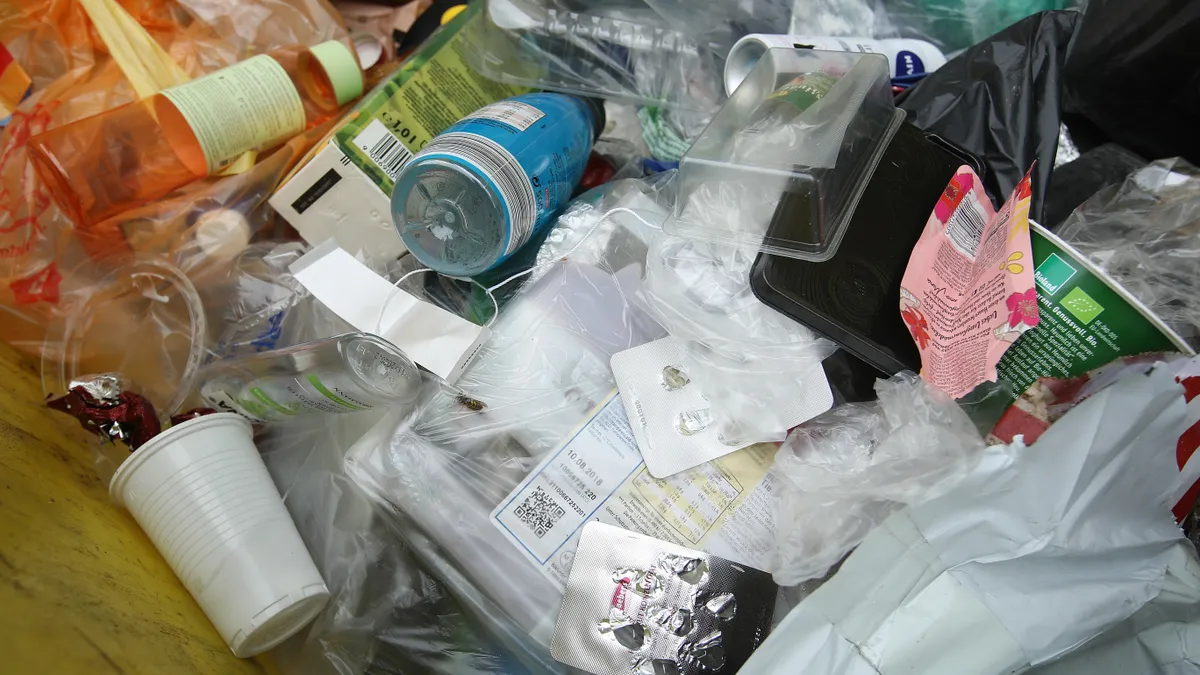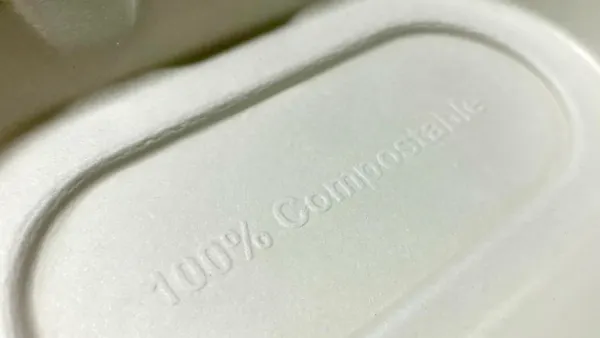Dive Brief:
- A report from Beyond Plastics and the International Pollutants Elimination Network says chemical recycling is not a solution to plastic pollution, and that chemical recycling companies have misled investors and the public about their projects’ efficacy while downplaying environmental concerns.
- The report released Tuesday is critical of the 11 chemical recycling facilities built so far in the United States, saying they process “insignificant” amounts of plastic while contributing to environmental pollution, particularly for residents of environmental justice communities.
- The report offers numerous recommendations for curbing or eliminating chemical recycling’s role in waste prevention strategies. It calls for placing a national moratorium on new plants, ending incentives such as subsidies and tax breaks, and prohibiting chemical recycling from counting toward recycling targets in public policies such as extended producer responsibility programs.
Dive Insight:
The report comes just before a United Nations Environment Programme meeting in Nairobi, Kenya, from Nov. 13-19. Officials from around the world will continue to negotiate details of an legally binding international agreement to “end plastic pollution” by addressing the production, design and disposal of plastic.
Working off a “zero draft,” stakeholders could debate chemical recycling’s role in the agreement in future meetings. An options paper released at a previous meeting mentions chemical recycling as both an option for addressing plastic pollution and also a possible “dangerous practice.”
“Promotion of chemical recycling is not in the zero draft, but I'm not confident that it's going to stay that way,” said Judith Enck, president of Beyond Plastics, during a call with reporters on Tuesday. She added that the looming UN meetings helped prompt the timing of the new report. “I know there is a strong push all over the world to promote chemical recycling. What we need the treaty to focus on is actually reducing the production, use and disposal of plastics.”
Beyond Plastics and IPEN have long spoken out about what they see is a deceptive and ineffective strategy that promotes continued plastic use. “There is no miracle technology just around the corner,” said report author Lee Bell, an IPEN technical advisor, during the press call, adding that “instead of solving the toxic waste problem [and] the plastic waste problem, chemical recycling creates a new, more toxic waste problem.”
At the same time, major companies have spent billions of dollars in recent years in an effort to scale up chemical recycling plants around the country. These companies see the technology, also known as advanced recycling, as a complement to mechanical recycling that can process large amounts of hard-to-recycle plastics into new feedstocks instead of the material going to landfills.
The Beyond Plastics report says such companies have overpromised on their ability to process such plastics, pointing out that numerous projects have yet to operate at full capacity or haven’t been clear about how much plastic they actually manage. Some have scaled back their plans when funding or partnerships with local officials have fallen through, it said. The report includes publicly available details on project financing, locations and the companies’ reported capacity and scale.
If the 11 facilities were able to operate at full capacity, they would be able to handle about 459,280 tons of plastic waste per year. That’s less than 1.3% of what’s generated in the U.S. annually, the report estimates.
The report is also critical of recent laws reclassifying chemical recycling as a manufacturing practice instead of solid waste, saying these new laws allow the industry to sidestep important environmental regulations. The American Chemistry Council has backed these types of laws.
Ross Eisenberg, vice president of the ACC’s plastics division, says the report is inaccurate and misleading. “Many proven chemical recycling technologies are in use today, remaking new plastics from used plastics,” he said in a statement.
Eisenberg pointed to a recent study from the U.S. Department of Energy’s Argonne National Laboratory that says chemical recycling processes contribute less greenhouse gas emissions and use less water when compared to virgin plastics production. Such technologies “are helping reduce plastic waste and minimize environmental impacts,” he said.
Yet Beyond Plastics and IPEN are calling for numerous actions to stop new chemical recycling projects and advocate for existing chemical recycling plants to undergo “extensive analyses and testing” on emissions, wastewater and other potential environmental risks. Other recommendations include prohibiting chemical recycling plants from being sited in environmental justice communities.










